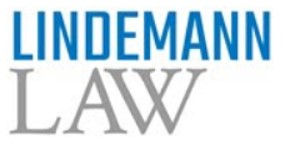Offshore
Private Relocation To Switzerland

This article runs through the considerations people should take account of in moving themselves and their business interests to Switzerland.
The following article comes from Lindemann Law, which
is based in Switzerland, and this news service is pleased to set
out its views on relocating services for those seeking to move to
the Alpine state. At a time when HNW individuals and families are
looking at options in an often uncertain geopolitical climate,
the points set out in this article are particularly timely. As
ever, we welcome feedback: email the editors at tom.burroughes@wealthbriefing.com
and jackie.bennion@clearviewpublishing.com
Times are turbulent and many of our entrepreneur clients
currently ask us how they could relocate to Switzerland, either
alone, with their business or with their
families. Switzerland still enjoys the reputation of
combining highest living standards with security, AAA financial
status, a top education system and an attractive tax and business
environment. It appeals especially to an internationally
oriented, active and successful, mobile clientele.
1. Why now
The current crisis is far from over but until today, by
comparison, Switzerland has remained attractive even during
lockdowns. Home to the headquarters of many industrial giants
from Nestlé to Novartis, Roche to ABB, it is considered a
business hub.
The resilient health care system with a citizen-orientated
principal attitude by the government are perceived as additional
reasons to relocate now. With 40’000 km2 size, the country offers
many lakes and rivers and a beautiful landscape. Thanks to
international flight connections and being ideally situated in
the heart of Europe, all business cities are quickly within
reach.
2. EU/EEA citizens
EU/EEA citizens have a privileged status in Switzerland under the
so-called bilateral agreement. For citizens with professional
activities, an employment contract for more than a year with a
Swiss employer or who are running their own business, that will
get them a residence permit.
EU/EEA citizens without professional activities have to prove
that they have sufficient financial means, health care insurance
and adequate accommodation.
3. Non-EU/EEA citizens
Since Brexit, UK citizens belong to the Non-EU/EEA category too,
but their contingent is larger than the rest of the
group. Residence permits can be granted for retired persons
from 55, for medical and educational reasons and of course for
business reasons. There is a contingent for this group, which so
far has not been used up each year. Notable, entrepreneurs who
arrive with their businesses in Switzerland and create jobs may
obtain residence permits for themselves.
4. Taxation
In principle, Switzerland taxes its residents on a world-wide
basis.
There are nearly 90 international tax treaties to benefit from
and there are exceptions for real estate, trusts and majority
interests in companies.
There is income and wealth tax, however, for a foreign taxpayer,
forfeit tax packages can be negotiated pre-arrival (“lump-sum
taxation”). As widely known, tax rates can vary a lot not only
between cantons but also municipalities.
This is referred to as “Swiss tax competition” and ensures that
tax rates are kept as low as possible throughout the country.
The lowest tax rates are seen in Zug, Schwyz and neighbouring
Liechtenstein starting at 12 per cent for companies and 22 per
cent for individuals.
5. Inheritance, Trusts & Foundations
In most Swiss cantons and on federal level, there is no
inheritance tax between spouses and direct descendants, also no
gift tax. Switzerland and Liechtenstein are signatories of the
Hague convention and since 2007 cantonal practices have been
harmonised in trust taxation.
It greatly depends on whether the trust is irrevocable and
discretionary and certainly pre-arrival planning is advisable for
foreigners considering relocation to Switzerland. Under any
circumstances, professional tax advice should be sought before
establishing a trust as a Swiss resident.
6. Fintech
There is a worldwide leading and favourable legislation for
Fintechs in Switzerland with excellent reputation. Since this
year, Switzerland has a legal framework for distributed ledger
technologies, for instance the blockchain system. Again, advice
should be sought before arrival and before establishing a new
Fintech, especially under the Swiss laws for banking and
financial services.
7. Real estate
For Swiss nationals and Swiss residents with permit C,
residential real estate purchases are permitted. Certain
restrictions apply for permit B holders that are not EU/EEA
national as well as for secondary homes.
Interestingly, the purchase of commercial and industrial real
estate in Switzerland is not restricted. Moreover, in certain
cantons it is possible to purchase a holiday home within the
scope of quotas.
Further information and contact details:
www.lindemannlaw.ch
Dr Ariel Sergio Goekmen-Davidoff, LL.M, TEP
The document from the firm can also be viewed at this link.
